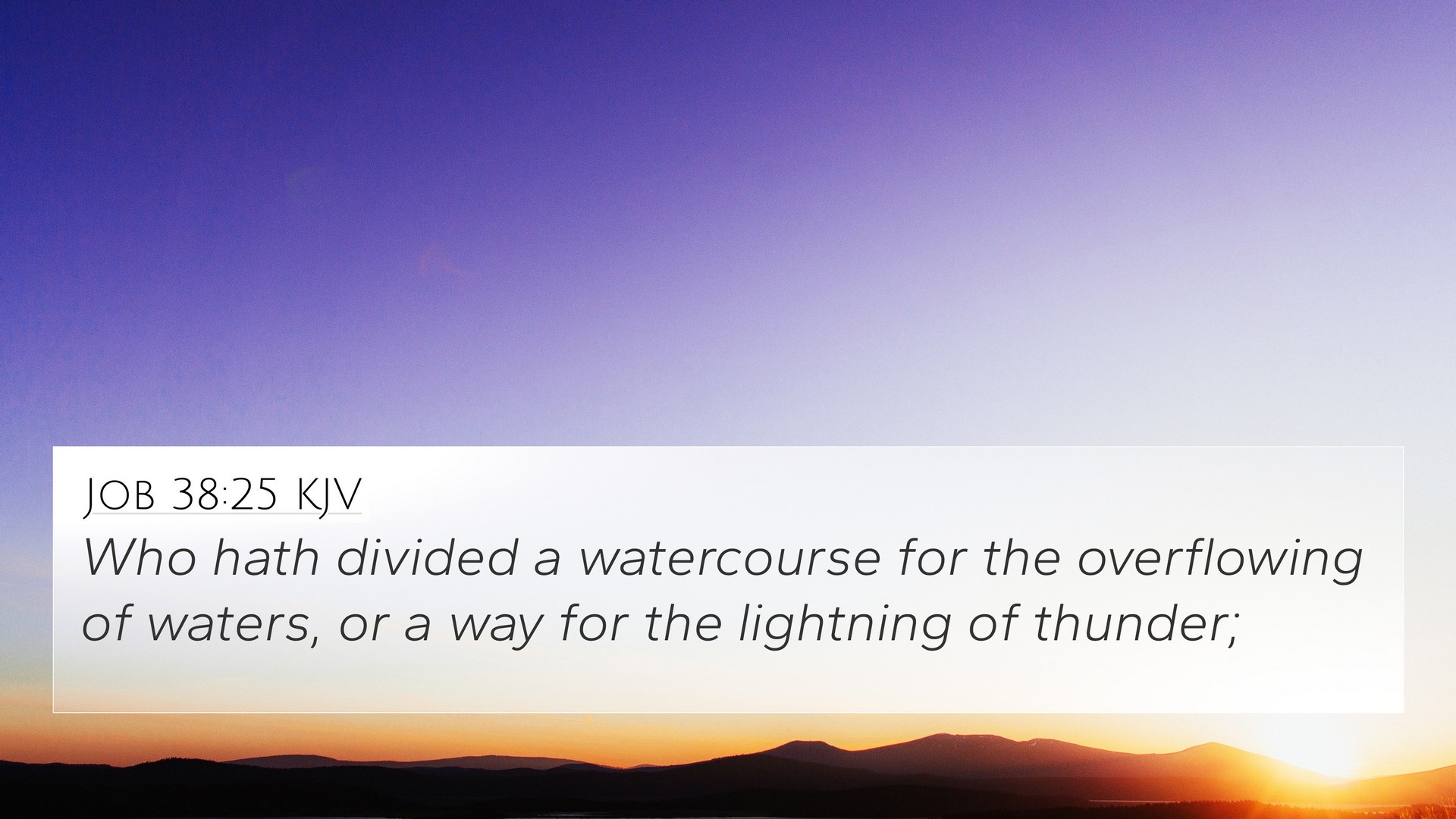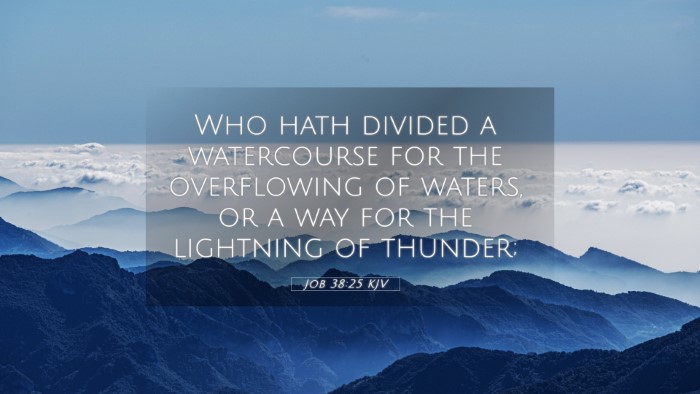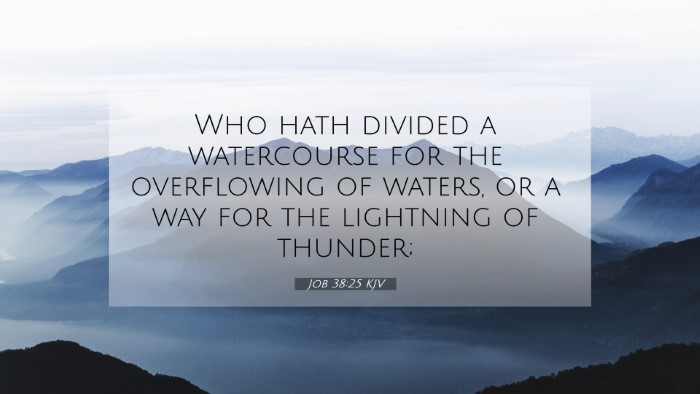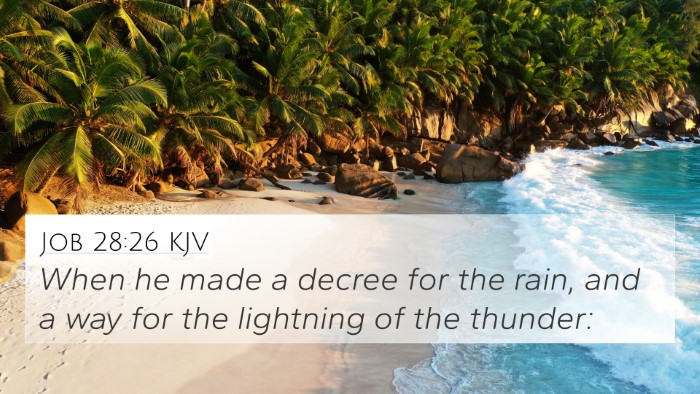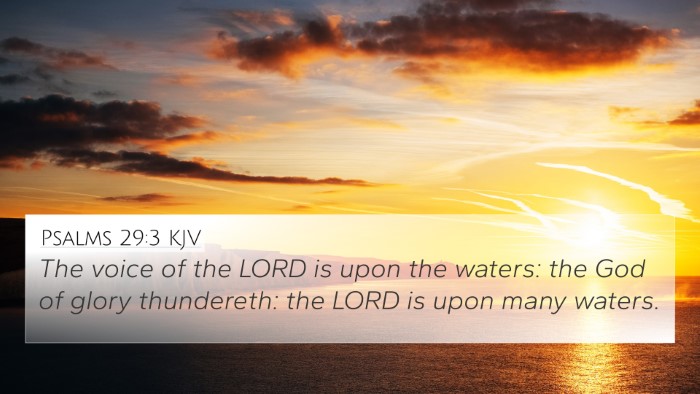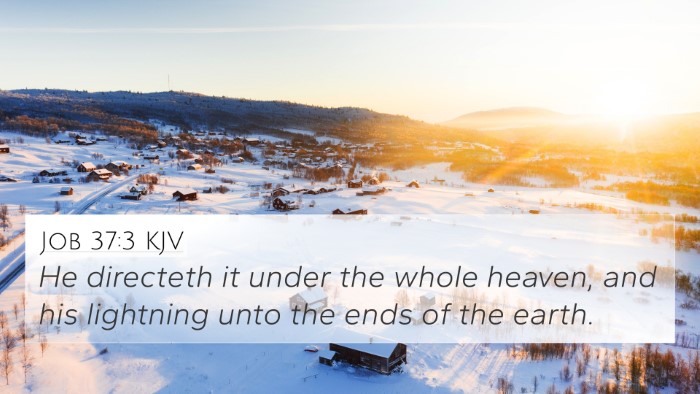Understanding Job 38:25
Job 38:25: "Who has divided a watercourse for the overflowing of waters, or a way for the lightning of thunder;"
This verse comes from God’s response to Job, emphasizing His authority over creation and the order established in nature. Here, God is addressing the fundamental principles He set in place, questioning Job about the organization of natural phenomena such as water and lightning.
Summary of Insights from Public Domain Commentaries
The following insights have been gleaned from various public domain commentaries:
- According to Matthew Henry, this verse serves to reflect on God's omnipotence in controlling natural forces, illustrating the idea that God’s creative power exceeds human understanding.
- Albert Barnes emphasizes that the rhetorical questions posed by God highlight the limitations of human wisdom in comparison to divine knowledge. Job is reminded of his place in the created order.
- Adam Clarke suggests that the imagery of the watercourse refers to the establishment of boundaries by God in nature, signifying His sovereign rule and the natural laws that govern the universe.
Deeper Analysis and Thematic Connections
Job 38:25 is deeply thematic, touching on several key biblical doctrines:
- God’s Sovereignty: This verse underlines the theme of God’s supreme authority and control over the world, portrayed vividly through His command over natural elements.
- The Mystery of Creation: God’s questions to Job prompt reflections on the complexity and mystery of creation, encouraging believers to trust in divine wisdom beyond human understanding.
Bible Verse Cross-References
Several other biblical texts provide cross-references which deepen our understanding of the themes explored in Job 38:25:
- Psalm 104:7: "At Your rebuke they fled; at the sound of Your thunder they hurried away." - reinforcing God's control over nature.
- Jeremiah 51:16: "When He utters His voice, there is a tumult of waters in the heavens..." - highlighting God's dominion over both earth and sky.
- Proverbs 30:4: "Who has ascended to heaven and descended? Who has gathered the wind in His fists?" - illustrating the same theme of divine authority.
- Matthew 8:27: "Even the winds and the sea obey Him!" - affirming the New Testament narrative of Jesus’ power over natural elements.
- Isaiah 40:12: "Who has measured the waters in the hollow of His hand?" - a reminder of God’s capacity to control all creation.
- Job 36:32: "He covers His hands with the lightning..." - showing God’s direct involvement with natural phenomena.
- Mark 4:39: "He awoke and rebuked the wind and said to the sea, 'Peace! Be still!'" - another example of God’s control over nature in the New Testament.
Comparative Bible Verse Analysis
The connections between these verses highlight the overarching themes of divine power and authority. The inter-biblical dialogue sheds light on how these fundamental truths are woven throughout scripture.
Tools for Bible Cross-Referencing
If you are interested in conducting deeper studies or finding cross-references for specific verses, the following tools can be useful:
- Bible Concordance: A reference tool to find specific words and their occurrences in the Bible.
- Cross-reference Bible Study: Approaches that encourage comparing verses across both Old and New Testaments.
- Bible Cross-reference Guide: Guides that provide links between related scriptures.
Conclusion
Job 38:25 serves not only as a declaration of God's sovereignty but also as a point of connection to various other scriptural passages that highlight similar themes. By utilizing the tools of cross-referencing and comparative analysis, one can appreciate the profound relationships between different parts of the Bible, resulting in a richer understanding of God's character and His ways with humanity.
